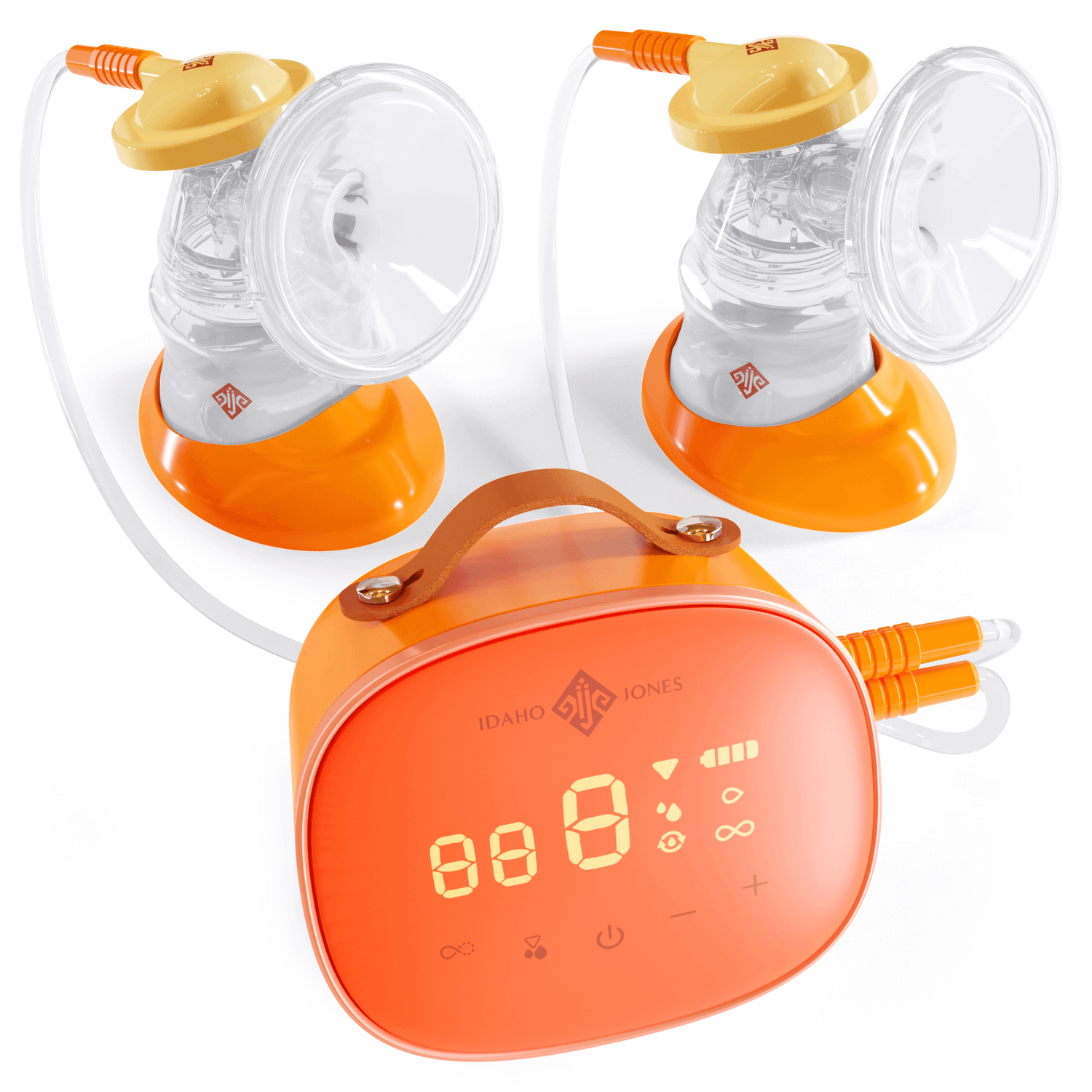If you’ve been breastfeeding for a bit—whether that’s weeks, months, or even years—you may be wondering how likely it is to get pregnant while breastfeeding. Some moms hope to prevent pregnancy and others are trying to conceive another child. No matter where you are on that spectrum, it’s helpful to understand the ins and outs of lactation and fertility. This post covers some frequently asked questions, and includes research that will help you make informed decisions about pregnancy and breastfeeding.
These are some of the common questions when it comes to fertility and breastfeeding:
- Can I get pregnant while breastfeeding?
- Can I use breastfeeding as birth control?
- Do I need to wean to get pregnant?
Here’s what we know—
Can I Get Pregnant While Breastfeeding?
Yes! For better or worse, it’s possible to get pregnant while breastfeeding. Some moms ovulate again even just a few weeks after giving birth, and because your period doesn’t return until after you’ve ovulated, it can be hard to know whether or not your menstrual cycle (and fertility) have returned post-baby. Return of fertility varies from person to person, and is difficult to predict. However, these are some of the factors that have been found to influence when someone’s period resumes after giving birth:
- Vaginal or cesarean birth
- Immediate or delayed initiation of lactation
- Baby’s age for starting solids or introducing supplementation
Can I Use Breastfeeding as Birth Control?
Maybe. Some moms do use breastfeeding as a form of birth control, and as with all birth control methods, effectiveness varies by adherence to the method. Because of the unpredictability of when your period will return, this method can be risky. Known as the “lactational amenorrhea method” or LAM, using breastfeeding as birth control relies on the following guidelines (adapted from World Alliance for Breastfeeding Action (WABA) resources).
You can use this method effectively if:
- Your menstrual period has not returned since birth
- You are breastfeeding on demand, both day and night, and not feeding your baby other foods regularly (i.e. exclusively breastfeeding)
- and your baby is less than six months old.
All of these conditions must be met for this birth control method to be considered effective. When all of these things are in place, multiple studies have found that there is a less than two percent chance of becoming pregnant while breastfeeding.
The lactational amenorrhea method of birth control is no longer effective if:
- Your menstrual period returns. (Two consecutive days of bleeding or spotting more than 56 days postpartum or your perception that your period has returned, whichever comes first.)
- You begin feeding your baby other liquids or foods regularly, or your baby starts sleeping through the night.
- Your baby is older than six months.
It’s important to emphasize that this method of birth control is temporary, and is not considered effective for any mother whose child is older than six months. Therefore, even if you use breastfeeding as a form of birth control, it’s advisable to have backup options and a plan of what to do when the method is no longer effective.
Do I Need to Wean to Get Pregnant?
On the other hand, some moms are ready to get pregnant again, but are still breastfeeding and worried about the effects on their fertility. Some people choose to wean to try to get pregnant again, and others find that it’s not necessary. Still others may wean to conceive another baby, and then begin to breastfeed their older child again during pregnancy or tandem feed both children postpartum. In a study of 179 mothers who had breastfed for at least six months, 61% also breastfed while pregnant with a subsequent child.Of the mothers who breastfed while pregnant, 38% went on to nurse both their newborn and toddler children postpartum, also known as “tandem nursing.”
You likely do not have to wean to get pregnant again. Breastfeeding can suppress ovulation and fertility, but if implantation occurs (when an embryo implants into the uterus), breastfeeding is unlikely to interfere with the pregnancy. You may know that oxytocin causes contractions, and that lots of oxytocin is also present while breastfeeding. KellyMom does a great job of explaining why breastfeeding isn’t thought to increase the risk of pre-term labor or miscarriage:
However, it’s worth noting that some moms find breastfeeding uncomfortable while pregnant, and many experience breastfeeding aversions. Breastfeeding aversion and agitation (also known as BAA) is common during pregnancy and in conjunction with the menstrual cycle, with aversions occurring more frequently before and during the menstrual period.
According to a summary of available research from KellyMom, mothers experiencing nursing aversions or BAA may feel:
- Anger
- Agitation
- Disgust/self-disgust
- Irritability
- Rage
- Skin itching/crawling
- Shame & guilt
- Intrusive thoughts
- Wanting to ‘run away’ so as to not be feeding
- Overwhelming urge to stop breastfeeding
- ‘Feeling trapped’ or a like a prisoner
- Wanting to ‘pinch’ the infant or child so they stop suckling
- Thoughts and feelings about being ‘touched out’
For most moms with aversions, these feelings go away after your baby stops breastfeeding and is not latched. If you’re pregnant or trying to conceive and are experiencing or worried about breastfeeding aversions, this doesn’t necessarily mean the end of your breastfeeding relationship with your older child. If you hope to continue, setting boundaries with your child around when you are or aren’t willing to breastfeed can help you find a balance that feels sustainable and acceptable for both of you.
If you want to wean, pregnancy can be a good time to do so, as your milk supply may decrease and ending your breastfeeding journey with one child can be part of your family’s preparation for a new baby. If you aren’t wanting or ready to wean, there are plenty of moms who continue breastfeeding through pregnancy and beyond.
Like many questions about fertility, breastfeeding, and pregnancy, the answers to the question “how likely is it to get pregnant while breastfeeding?” isn’t particularly clear cut. Your chances of getting pregnant vary based on your own reproductive history, your child’s age, your frequency of breastfeeding, and more. If you’re wanting to avoid pregnancy, lactation will likely help you do so, particularly in the first six months, though it isn’t a completely reliable method of birth control, especially if you aren’t following the guidelines. If you hope to become pregnant and aren’t ready to wean, there’s good news! Conception, pregnancy, and full-term birth while breastfeeding is very possible.



